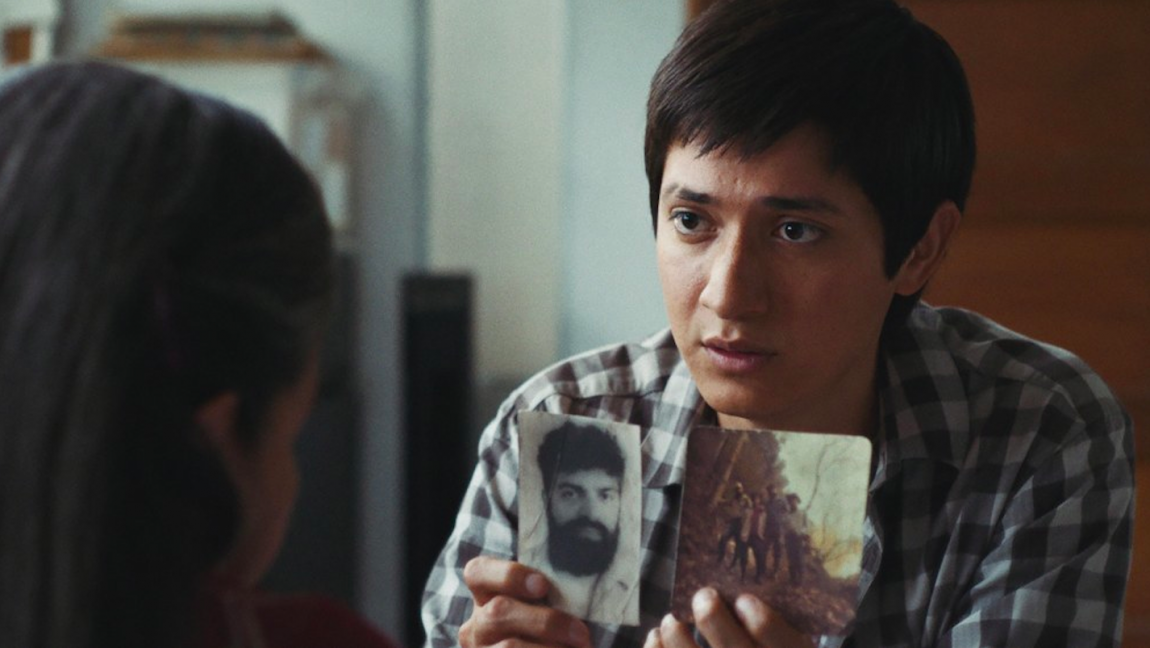FILM
REVIEW: ‘Nuestras Madres’ Is a Somber Drama on the Lasting Emotional Impact of Guatemala’s Civil War
REVIEW: ‘Nuestras Madres’ Is a Somber Drama on the Lasting Emotional Impact of Guatemala’s Civil War

Nuestras madres still courtesy of Perspective Films
By Kiko Martinez
How does someone move on with their life when so much of their past is left unresolved? It’s a question raised and, unfortunately, unanswered in Nuestras madres (Our Mothers), a lightweight film on a serious subject that deserved a more absorbing and expansive portrayal.
Coproduced by the countries of Belgium and Guatemala (Our Mothers is Belgium’s official submission for the 92nd Academy Awards in the International Film category), the drama explores the Guatemalan genocide that took place in the early 1980s during the country’s 36-year civil war. According to the Genocide Memorial Project, the Guatemalan government committed genocide against the Mayan population of Guatemala, destroying over 600 villages, killing 200,000 people and displacing 1.5 million more.
At the center of Our Mothers is Ernesto Gonzalez (Armando Espitia), a young forensic anthropologist whose job it is to exhume the remains of his fellow countrymen, women and children who were executed by their own government during the brutal conflict. Set in present-day Guatemala, the country has turned its attention to the trial of the military officers who started the civil war. While this trial serves as a backdrop, first-time feature writer-director Cesar Diaz, who lived in Belgium as teen but is of Guatemalan descent, pays little attention to the film’s historical perspective and, instead, revisits the atrocities from inside an emotionless vacuum.
Our Mothers begins with Ernesto puzzling together a human skeleton, piece by piece, on a firm slab. This is only one of many that he has dug out of a municipal cemetery. Although Ernesto’s supervisor makes it clear that his current project should be his top priority, he becomes sidetracked when an old woman, Nicolasa Caal de Sic (Aurelia Caal), asks for his help. She points him in the direction of a mass grave on private property where her husband was buried after he was tortured and then murdered by the Guatemalan military.
Because of his workload, Ernesto brushes her off at first, but is immediately intrigued when she shows him a photo of her husband, who happens to be standing next to a man Ernesto believes to be his guerrilla father, who disappeared during the war. Hoping to find out what happened to his father, Ernesto decides to follow Nicolasa’s tip and visit the mass grave without telling his mother Cristina (Emma Dib). When he visits Nicolasa in her village, Ernesto realizes he is no longer there just to unbury bones. He’s also there to dig up memories from other women in the village who have horror stories to share with him and to find closure for himself.
It’s during this section in Our Mothers where Diaz misses an opportunity to broaden the storytelling and identify some compelling recollections from these women whose lives were torn apart decades ago. Diaz doesn’t formally introduce any of them, but with the work of cinematographer Virginie Surdej, each of them is beautifully framed across wooden boards and their portraits are captured — elegant, indigenous faces weathered by years of emotional pain. All of them wear traditional and colorful huipils and cortes.
Although the women have come to “bear witness” to their experiences, we don’t hear from them. It’s evident Diaz wants each of their faces to tell their story, but without their voice — even if it was simply narrated — the chance to establish an authentic and firsthand connection to past events is lost. Regrettably, it’s not their specific stories Diaz is focused on. Our Mothers is really about Ernesto and the stake he claims to find out the truth behind the disappearance of his father. Later, it’s also about Cristina, the relationship she has with her son and the grim facts she has never been able to confess to him his entire life.
The ominous themes presented in the film are supported extremely well by Surdej, who creates interior scenes where shadows are cast on the characters. Whether it’s when Ernesto is in Nicolasa’s humble home sharing a cup of coffee or when he and his mother are staring out onto the shore contemplating their fears, the manner in which Surdej uses light and darkness speaks volumes to the details Ernesto still does not know.
Our Mothers, which won Diaz the Caméra d’Or Award (Best First Feature) at the 2019 Cannes Film Festival, leaves a lot to be desired from a historical and narrative aspect. As the lead character, Ernesto’s frustration is palpable throughout the film and the love he has for his mother is unmistakable, especially in the third act. Still, without historical context or a more profound approach at exorcising all the demons Diaz awakens, Our Mothers resembles the skeletal remains Ernesto pulls from the earth — brittle and incomplete.
Nuestras madres is Belgium’s submission for Best International Film at the 92nd Academy Awards.
No comments:
Post a Comment